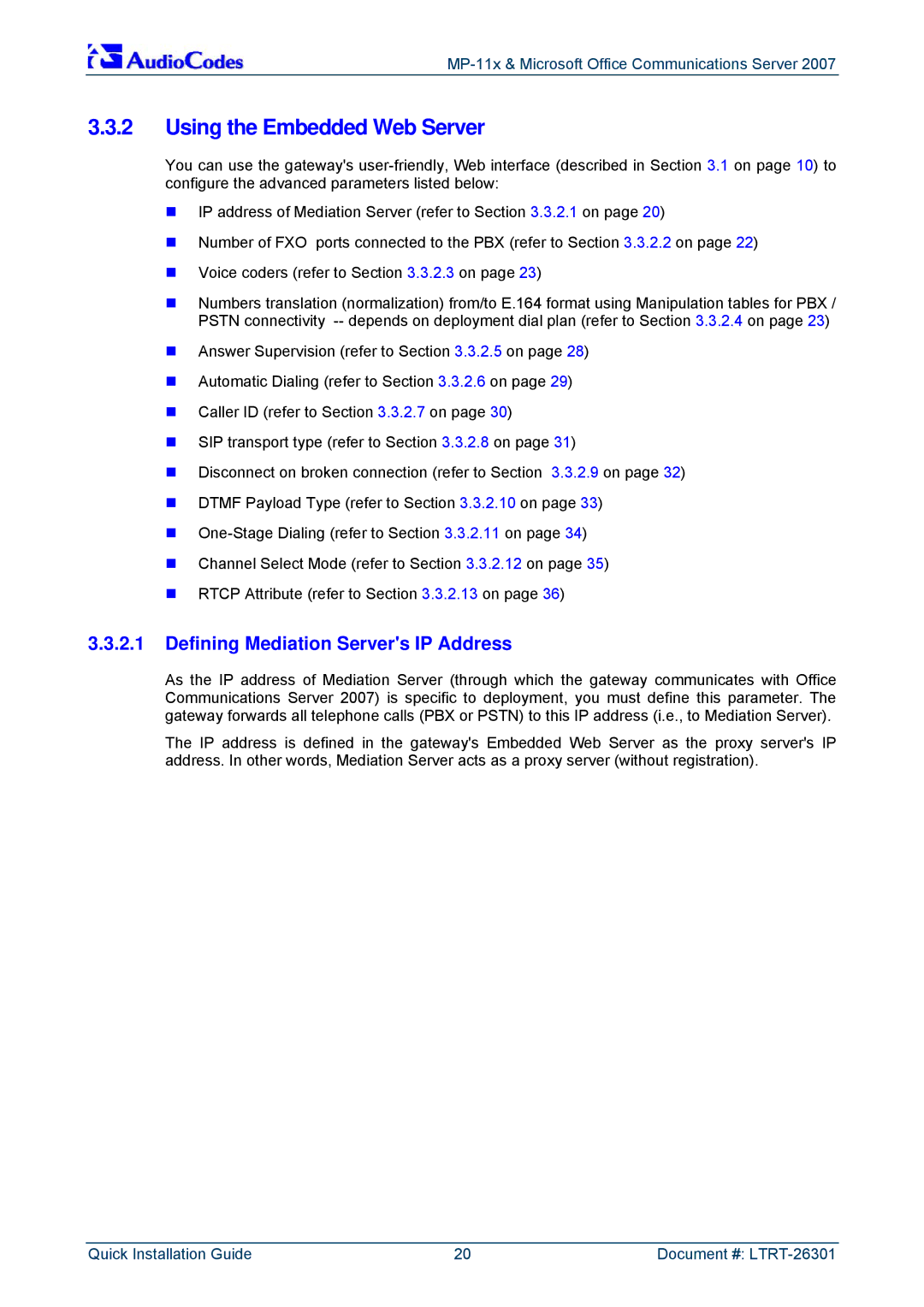
MP-11x & Microsoft Office Communications Server 2007
3.3.2Using the Embedded Web Server
You can use the gateway's
IP address of Mediation Server (refer to Section 3.3.2.1 on page 20)
Number of FXO ports connected to the PBX (refer to Section 3.3.2.2 on page 22)
Voice coders (refer to Section 3.3.2.3 on page 23)
Numbers translation (normalization) from/to E.164 format using Manipulation tables for PBX / PSTN connectivity
Answer Supervision (refer to Section 3.3.2.5 on page 28)
Automatic Dialing (refer to Section 3.3.2.6 on page 29)
Caller ID (refer to Section 3.3.2.7 on page 30)
SIP transport type (refer to Section 3.3.2.8 on page 31)
Disconnect on broken connection (refer to Section 3.3.2.9 on page 32)
DTMF Payload Type (refer to Section 3.3.2.10 on page 33)
Channel Select Mode (refer to Section 3.3.2.12 on page 35)
RTCP Attribute (refer to Section 3.3.2.13 on page 36)
3.3.2.1Defining Mediation Server's IP Address
As the IP address of Mediation Server (through which the gateway communicates with Office Communications Server 2007) is specific to deployment, you must define this parameter. The gateway forwards all telephone calls (PBX or PSTN) to this IP address (i.e., to Mediation Server).
The IP address is defined in the gateway's Embedded Web Server as the proxy server's IP address. In other words, Mediation Server acts as a proxy server (without registration).
Quick Installation Guide | 20 | Document #: |
